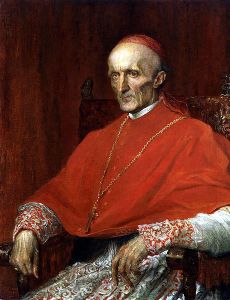 The Sacred Heart is the key of the Incarnation; the Incarnation is the treasure-house in which are all the truths of the Father, Son, and Holy Ghost.
The Sacred Heart is the key of the Incarnation; the Incarnation is the treasure-house in which are all the truths of the Father, Son, and Holy Ghost.
The Incarnation casts off two rays of light: on the one side, the mystery of the Holy Sacrifice of the Altar; on the other, the devotion due to the Blessed Mother of God.
Anyone who knows the Sacred Heart aright will know…the whole science of God and the whole science of man, and the relations between God and man and between man and man. These truths are the dogma of dogmas, the treasures hid in the Sacred Heart, the tabernacle of God.
Make yourselves, then, disciples of the Sacred Heart; learn to know it, and that knowledge will never pass away.
[…] Love…the Sacred Heart, and that love will pass into the Beatific Union; for charity is eternal, and the love of the Sacred Heart is the union of our faint weak charity with the fervent charity, divine and human, of Jesus Christ our Lord.
Adore the Sacred Heart, and it will pass into the worship of the eternal throne, where there will be prayer no longer and reparation no more; but praise for ever, and thanksgiving to all eternity.
Do not think that the science of the Sacred Heart is too deep for yon. It is the science of the poor and the science of the little child; they, by an infused light and by an implicit knowledge, know the Sacred Heart even more perfectly and more precisely than the cultivated intellect which, in its cultivation, is cold.
Therefore it is a science within the reach of all; and it comes more by love than by light, more by prayer than by study; most of all it comes by communion with the Precious Body and Blood of Jesus Himself.
Make yourselves, then, disciples of His Sacred Heart. Learn to love and to be like it; and in the measure in which you are like it you will know it; and in the measure in which you know it, you will love it; and it will be in you as rest and sweetness and light and strength.
You will walk with Jesus in this world as the two disciples walked with Him to Emmaus, but your eyes will not be holden: and your heart will bum within you as He talks with you by the way;.
And when you see Him in eternity He will not vanish out of your sight, but you will see Him as He is, and He will abide with you forever.
H.E. Cardinal Manning (1808-1892): The Glories of the Sacred Heart, pp. 97-99.








